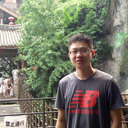Chloroform fraction of Scutellaria barbata D. Don promotes apoptosis and suppresses proliferation in human colon cancer cells.
Ključne riječi
Sažetak
Scutellaria barbata D. Don (SB) has long been used as a major component in numerous Chinese medical formulas to clinically treat various types of cancer. Previously, we reported that the extracts of SB were able to suppress colon cancer growth in vivo and in vitro, possibly by inducing cancer cell apoptosis and inhibiting cell proliferation and tumor angiogenesis. However, the anticancer mechanisms of its bioactive ingredients remain largely unclear. In the present study, using three human colon cancer cell lines SW620, HT-29 and HCT-8, the antitumor effect of different solvent fractions of SB were evaluated and the potential underlying molecular mechanisms were investigated. Using an 3-(4, 5-dimethylthiazol-2-yl)-2,5-diphenyltetrazolium bromide assay, it was revealed that the chloroform fraction of SB (ECSB) exhibited the most potent inhibitory effect on the growth of all three colon cancer cell lines and SW620 cells exhibited the most sensitive response to ECSB treatment (IC50=65 µg/ml). In addition, by performing fluorescence-activated cell sorting, transmission electron microscopy and colony formation assays, it was observed that ECSB significantly induced apoptosis and inhibited proliferation in SW620 cells in a dose-dependent manner. Furthermore, ECSB treatment resulted in the upregulation of the pro-apoptotic Bax/Bcl-2 ratio and a decrease in the expression of the pro-proliferative cyclin D1 and cyclin-dependent kinase 4. The results from the present study may provide a scientific foundation for the development of novel anticancer agents from the bioactive ingredients in the ECSB.



